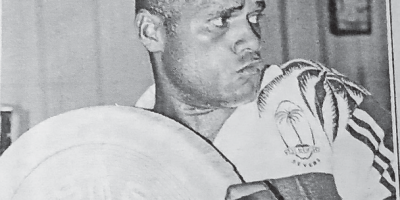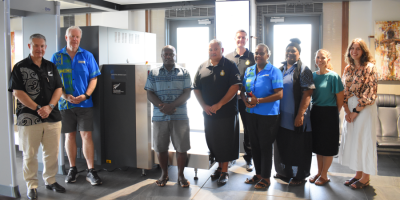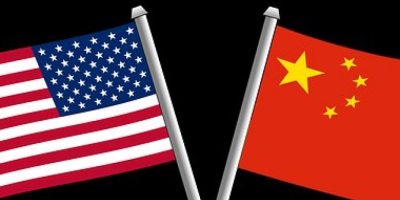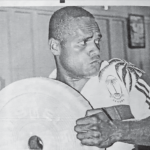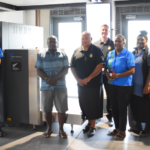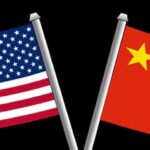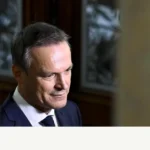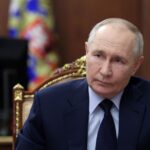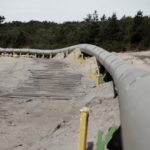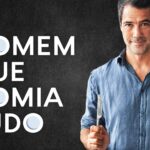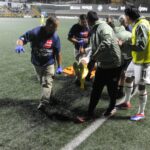
Tupapa Maraerenga skipper Grover Harmon controls possession against Royal Puma FC. OFC MEDIA/25021119
Host nation side Tupapa Maraerenga FC and Royal Puma FC played out an entertaining 3-3 draw in the OFC Men’s Champions League 2025 – Qualifying, eliminating the American Samoa side but keeping Tupapa’s hopes alive.
Five first-half goals set the tone for the afternoon, with intermittent heavy rain showers creating a challenging environment for both sides at CIFA Complex in Matavera yesterday.
Tupapa captain Grover Harmon went close early on, when his long-range free-kick was tipped onto the post by Royal Puma goalkeeper Felise Fata.
Harmon wasn’t to be denied minutes later however, when he converted from close range following a free-kick wide on the left.
Royal Puma equalised a little over ten minutes later when Johnica Collins scored amid chaos in the Tupapa box after Jared Cunniff’s free-kick took a wicked ricochet.
Owenne Matapo restored Tupapa’s lead, before Collins grabbed his second to make it 2-2 in a back-and-forth contest.
Matapo ensured the Cook Islanders held the lead at half-time – scoring from the spot after Fata had brought down Tremaine Rimene-Albrett to concede a penalty.
Royal Puma made a change in goal at half-time in a bid to turn the tide. The experienced Nicky Salapu coming on to replace Felise Fata.
The second period was a notably quieter affair in terms of goalmouth action, with Tupapa adopting a more conservative approach in a bid to protect their narrow lead.
Royal Puma enjoyed more possession in the second fourty-five but struggled to carve out much in the way of clear-cut chances, with Manaariki Pierre largely untroubled in the Tupapa goal.
With less than ten minutes remaining, that pressure finally paid off. Jared Cunniff played through on goal before selflessly squaring the ball for substitute Fau Fea to tap into an empty net.
Entering stoppage time Tupapa had multiple chances to clinch a victory, substitute Jake McCoy came close on two occasions only to be denied by some brilliant goalkeeping from Salapu.
The draw sees Royal Puma’s dream of playing in the OFC Men’s Champions League come to an end, but Tupapa Maraerenga can qualify with a victory over Vaipuna SC on Friday.
Results
Royal Puma FC: 3 (Johnica COLLINS 26’, 36’, Fau FEA 84′) Tupapa Maraerenga FC: 3 (Grover HARMON 14’, Owenne MATAPO 29’, 45+3’ (P)) HT: 2-3


